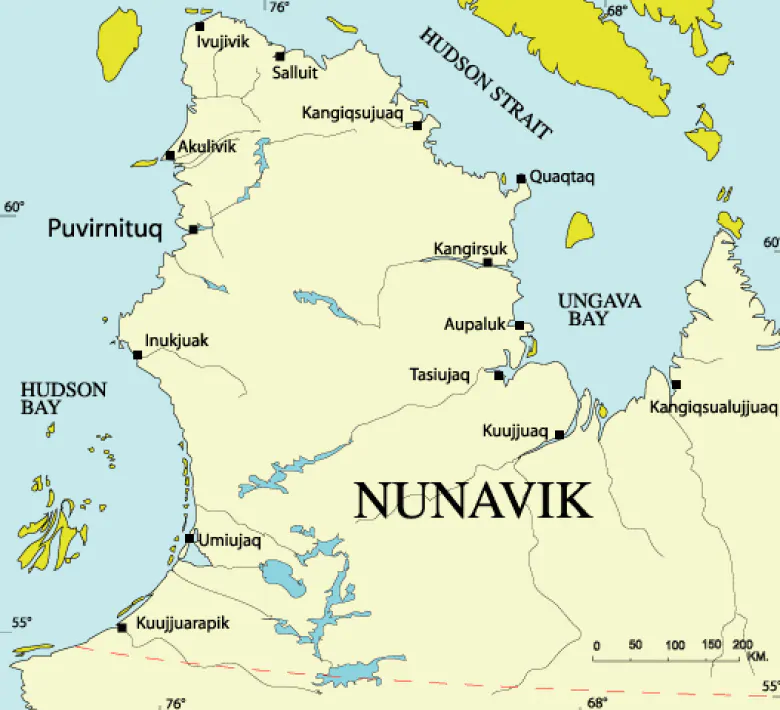New Quebec audio guide shows how to correctly pronounce Inuktitut place names in Nunavik

The Quebec government department responsible for authorizing place names, the Commission de toponymie du Québec, has launched a new online audio guide to help people correctly pronounce Inuktitut place names.
Visitors to the commission’s website can now hear audio recordings of the the correct Inuktitut pronunciation of 125 names of communities, rivers, lakes, mountains and other geographical features in Nunavik, the Inuit territory of northern Quebec.
The commission worked with the Avataq Cultural Institute, which has been promoting Inuit culture in Quebec since it was founded in 1980.
The institute has been helping the commission determine how to write traditional Nunavik place names in Roman letters and to explain their meaning and history.
Now people can go to the commission’s website, click on a name and listen to how to correctly pronounce it.
Names used for many generations
Elsa Cencig, an archeologist who works at the institute, helped to organize the project.
“Inuktitut — the Inuit language — is traditionally written in symbols called syllabics, but when you write it in Roman letters, there are certain letters that are pronounced differently,” Cencig told CBC Tuesday.
She gave the example of Ivujivik, the northernmost community in Nunavik. She said the letter ‘j’ in the word should be pronounced more like a ‘y’: ee-voo-yee-vik as opposed to ee-voo-jee-vik.
Nicolas Pirti-Duplessis, an information agent at the institute who is from Akulivik, recorded the correct pronunciation of all the place names.
“It was fun for me to do it so other people can understand how our language is supposed to sound,” Pirti-Duplessis told CBC in an interview Tuesday.
Pirti-Duplessis said he made sure to reflect the two regional dialects in Nunavik. He said there are subtle differences in the accents of people who come from the Ungava Bay side of Nunavik and those who are from the Hudson Bay side.
“I think it’s a fantastic idea to have the place names in audio, so people can listen to them. It gives them an idea of the colour of the language,” he said.
“It’s really important to finally officialize the place names of our territory which have been used by our ancestors for so many generations,” Pirti-Duplessis said.
So far Pirti-Duplessis has only recorded newly formalized place names for the commission.
The commission said the ultimate goal is to record all of the registered place names in Inuktitut in its database, so people can pronounce them correctly.





